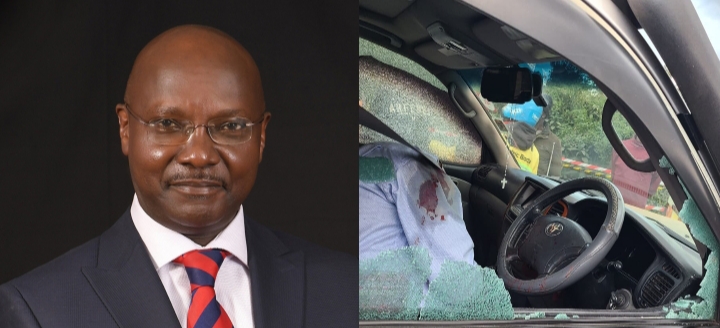The killing of lawyer Mathew Kyalo Mbobu has left Kenya shaken and exposed once again the rot that continues to thrive in powerful institutions.
On September 9, 2025, Mbobu was driving along Magadi Road near Galleria Mall in Karen when a gunman on a motorcycle opened fire on him, ending his life instantly.
Police confirmed that it was a targeted hit, carried out in broad daylight and meant to silence him. His murder has raised questions that go far beyond a single act of violence, pointing directly at the toxic mix of corruption between Kenya Commercial Bank and sections of the judiciary.
Mbobu was a respected lawyer with nearly 30 years of experience, known for his work as chairman of the Political Parties Disputes Tribunal and as the head of his firm Kyalo & Associates Advocates.
He was not just a lawyer but also a lecturer, author, and mentor to many law students. His death is not only the loss of a brilliant legal mind but also a direct blow to justice in Kenya.
His assassination comes against the backdrop of a decades-long case involving KCB and Captain (Rtd) Kung’u Muigai over loans and contested properties.
For more than 30 years, Muigai has fought against KCB’s attempt to auction his properties after defaulting on a loan tied to Muiri Coffee Estate.
Over 14 suits have been filed, and each time the courts dismissed them as res judicata, insisting the matter had already been determined.
But Muigai has consistently alleged that the dismissals were not genuine judgments but bought outcomes, accusing KCB of bribing judges with millions of dollars channeled through offshore accounts.
In a recent video that circulated widely, he named 17 appellate judges and one High Court judge, exposing them as part of a network corrupted by KCB’s money.
This is where Mbobu’s death becomes impossible to separate from the broader scandal. His role in representing Muigai in this battle placed him in direct conflict with one of the country’s largest banks and judges whose integrity is already under fire.
KCB, which markets itself as a pillar of Kenya’s financial stability, is now associated with claims of fixing court outcomes, bribing judicial officers, and crushing opposition through money and influence. A bank of its size is expected to operate transparently and fairly, but here it is accused of fueling one of the longest-running frauds in Kenya’s legal history.
The judges implicated in this case do not emerge any cleaner. For years, the judiciary has insisted that Muigai’s accusations have no proof, but the consistency of the claims, the massive sums alleged to have changed hands, and now the killing of a lawyer linked to the case all point to a compromised system. The judiciary exists to protect fairness, yet when lawyers are being gunned down and litigants accuse courts of being bought, the trust that holds the justice system together is shattered.
The murder of Mbobu cannot be dismissed as just another crime in Nairobi. It is tied to a bigger picture of corruption and intimidation, where a powerful bank and judges accused of bribery stand at the center.
If lawyers fighting these battles are eliminated, then ordinary Kenyans stand no chance at all. Justice becomes a commodity bought by the highest bidder. Unless the government confronts this case directly, investigating KCB’s role, exposing corrupt judges, and finding those who planned Mbobu’s killing, Kenya will continue sinking into a culture where money and violence replace fairness and truth.
The country mourns Mbobu, but mourning is not enough. His death is a reminder that corruption in banking and the judiciary does not just ruin cases it kills.
And until accountability is enforced on KCB and the judges involved, Kenya’s justice system will remain hostage to greed and impunity.



